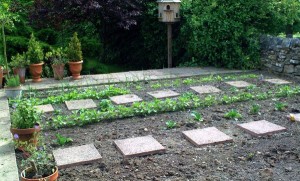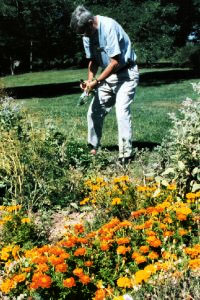
A good start for the plants often leads to healthy plants. You have to make everything right so that your plants will grow right from the very start otherwise all that you have invested will go down the drain because your plant has not grown the right way. It’s just like planting roses carelessly. You spent on the seeds and fertilizer. Yet you were not religious enough in growing it well. When it comes to blooming time, you discover that it does not bloom any flowers at all.
Here are some tips for beginners:
Make sure the soil is rich
One significant step considered on planting tips for beginners is before you even start planting, the soil should have been prepared already. Till the soil and add compost to it so that it will be rich and ready for planting. Preparing the soils should be done as early as 6 weeks before planting. So if you are planning to plant annuals that grow best under the heat of the summer, start preparing the soil as early as the last sign of frost is gone.
Prepare and loosen the soil
The soil on which you will be planting should be loose. Not as loose enough as sand but just right so that the roots will be able to grown and penetrate further than the topsoil.
In most farms, the soil is ploughed but in the garden you can loosen the topsoil by tilling it. It is also a good way to aerate the soil. It is easier to plant when the ground is not impacted. Plants will have difficulty growing when they still have to penetrate through impacted ground.

Plant in warm soil but avoid the direct heat of the sun
A lot of plants do not tolerate the cold. Even seeds are not yet ready to grow until they have dried up. Planting should be started when the environment is warm. It may be sunny out, but still the ground is cold so you should really check on the ground temperature first before planting.
Another thing considered on planting tips for beginners is to make sure that the soil is warm when you do so, however, do not plant under the scorching heat of the sun. Seedlings are very delicate and they could easily die before even beginning to take hold of the ground and grow. It is recommended to plant on a cloudy day or under a slight drizzle or during the evening.
Spray, dig and plant
Even if the soil has already been prepared for several weeks, it should be a bit damped. So spray the ground with water using a garden hose before putting in the seeds or seedlings. One important aspects of planting tips for beginners is to remember that the hole wherein you are going to plant your seedlings should be as deep as its original container so that the plant will not have a hard time adjusting in its new environment.
Mulch
As part of the planting tips for beginners, after planting, protect your plant by mulching its surrounding area with dried leaves to prevent the soil from drying up under the heat of the sun. This is very important since your seedling is still adjusting to its new environment. Some types of mulch also give nutrient to the plants.
Keep away from pests and disease
New plants are vulnerable to attacks by insects and pest. The most cost-effective of warding them off is by wiping the leaves with vinegar. It drives away insects and it makes the plant more resistant to fungi too. This is very crucial because at this point the energy of the plant must be focused on growing instead of fighting off plant diseases.
Don’t drown the plant
A lot of us are guilty of flooding our plants with too much water. This is actually the most common cause of plant mortality. Planting tips for beginners teaches you to always use sprinkler when watering your plants. Spray but do not pour. Just make the soil damp so that your plant will not drown.
Click here to Return from Planting Tips for Beginners to Basics of Gardening